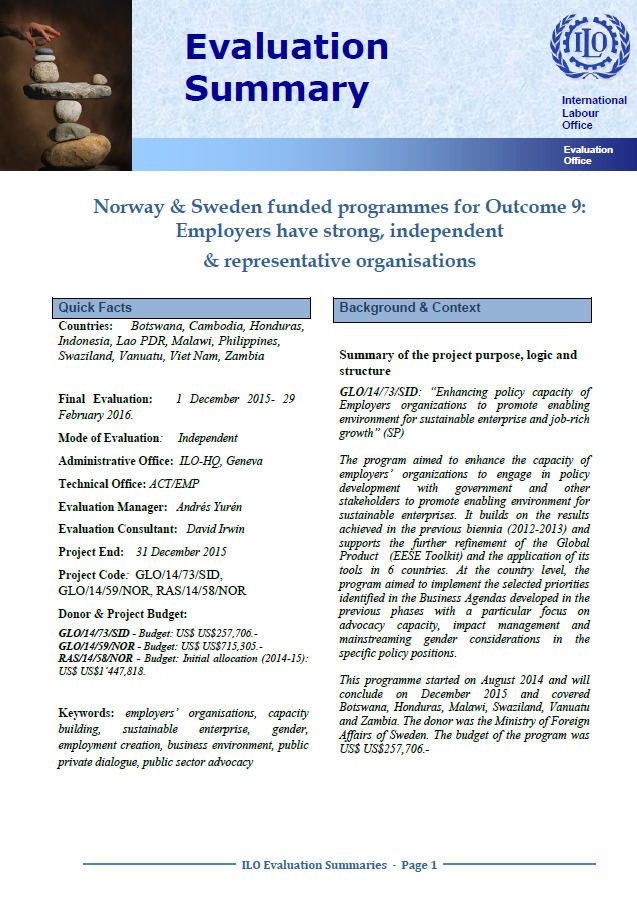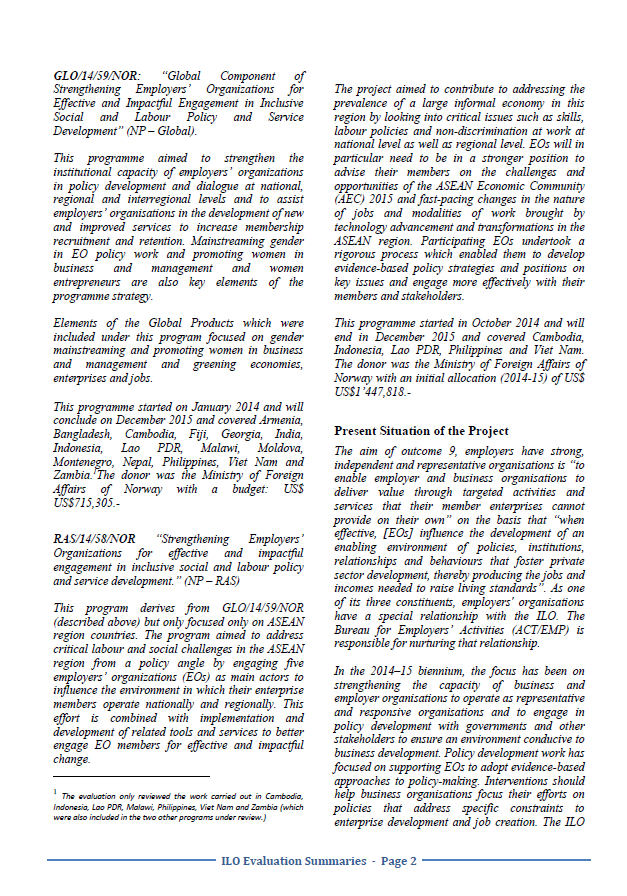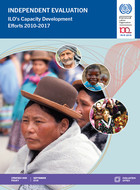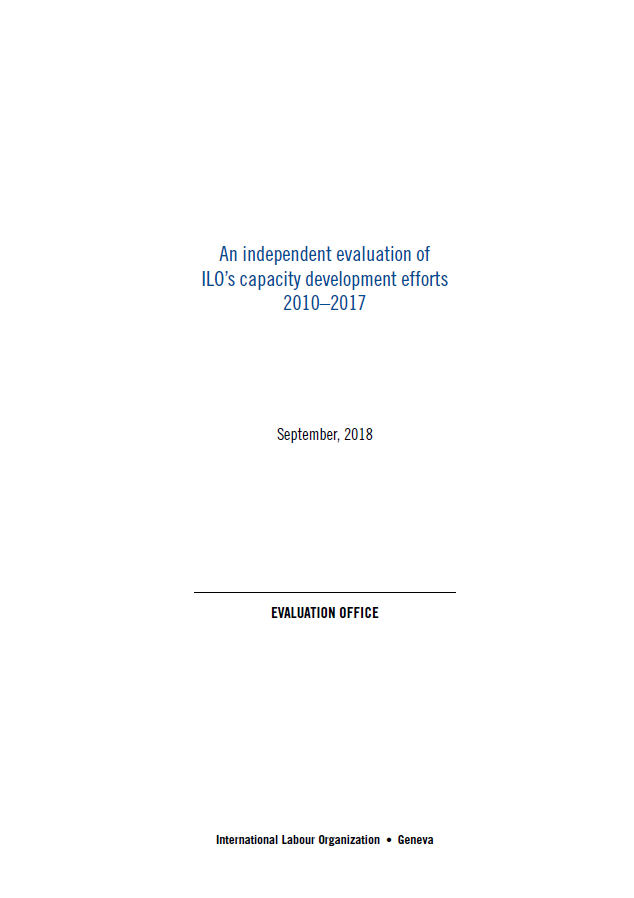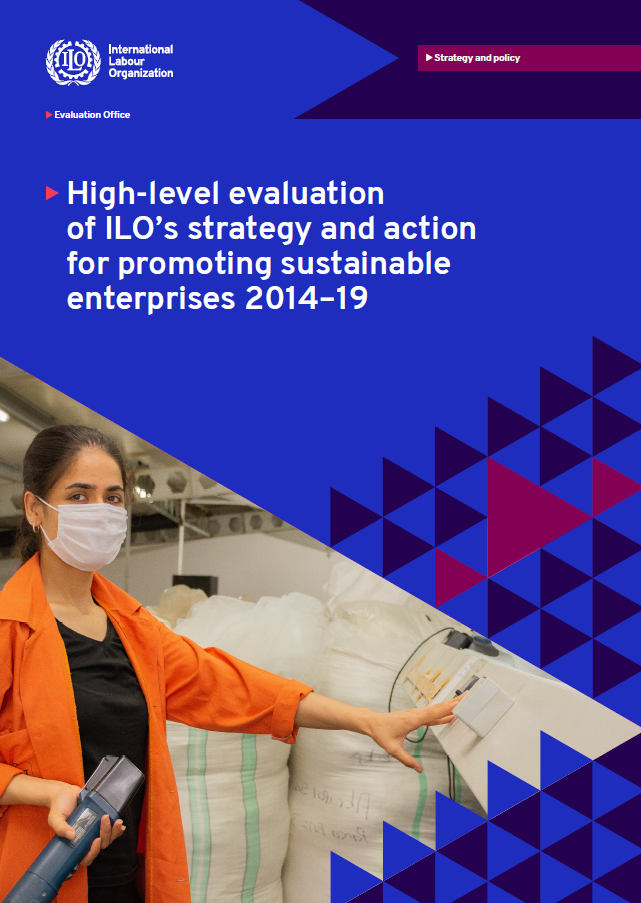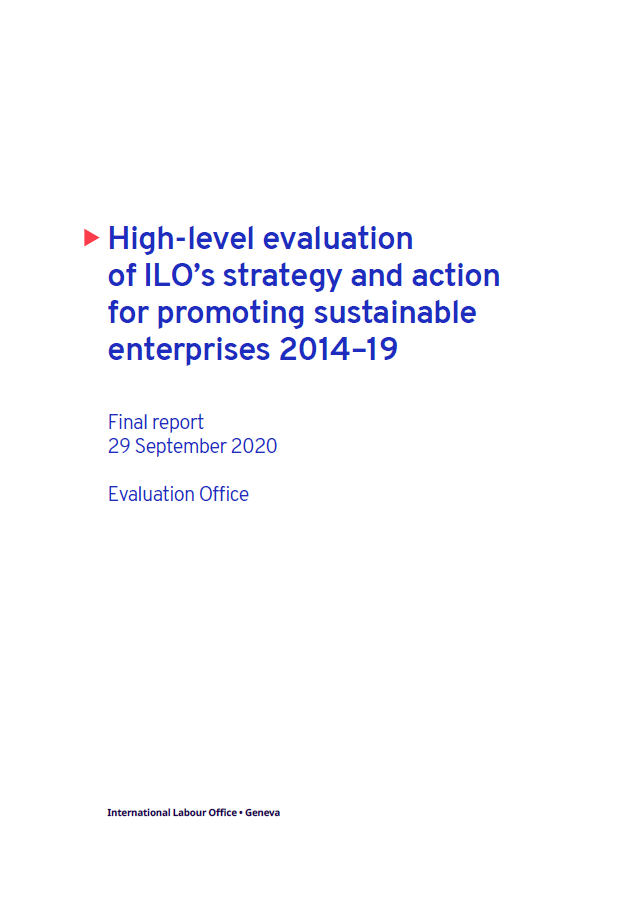International Labour Organisation
The International Labour Organisation aims to promote rights at work, encourage decent employment opportunities,
enhance social protection and strengthen dialogue on work-related issues. Its work is undertaken through departments which focus on specific aspects of its work.
I have been working with the Bureau for Employer Activities (ACT/EMP). ACT/EMP supports
Employers' Organisations building their capacity so that they are better able to influence public policy.

In 2018, I was invited to join a three person team which undertook a high level evaluation of ILO's efforts to deliver capacity development to all of its constituents, that is, governments, employers' organisations and workers' organisations. This involved visits to 11 countries (between us, not by all of us) and desk reviews of a further couple of countries. Further information is available on ILO's website. The full report is available from ILO. In addition, ILO has prepared a fact sheet
Spreading the word
- Biennial conference of field specialists: I was asked to present a description of some the work being undertaken by advocacy support funds in sub-Saharan Africa and to draw out the lessons that might be appropriate in supporting ACT/EMP with their work (2015)
- Symposium: I was invited to participate in a symposium held at the University of Konstanz in December 2015 in which participants shared views and lessons about support for employers' organisations and how it can be improved
- Key note address: I was invited to give an address to a conference in Beirut of Employers' Organisations from Lebanon, Yemen, Palestine and Jordan(2016)
- I provided a series of training programmes for the Jordan Chamber of Industry, covering strategy, advocacy, action planning and fund-raising (2016)
Evaluation of support for Employers' Organisations
For the period 2014-2015, ACT/EMP received additional financial support from the Governments of Norway and Sweden to support some of their global products and to provide specific support to employers' organisations in Zambia, Botswana, Malawi, Swaziland, Vanuatu, Honduras, Philippines, Indonesia, Vietnam, Cambodia, Lao PDR. Sadly I did not get to visit all of them, but I was asked to undertake the evaluation of ACT/EMPs support - which broadly had made a huge difference to the supported organisations. The summary is available from the ILO (click on the back of the image).It is with great pleasure that I inform you that the Final Evaluation Report - "Independent evaluation of Norway & Sweden funded programmes
for Outcome 9: Employers have strong, independent & representative organisations" has been approved by the ILO.
I am also happy to inform you that our ILO EVAL Unit indicated that they found the Report exceptionally well done. So, congratulations for a job well done.

Andres Yuren, Especialista Principal en Actividades con Empleadores (ACT/EMP)
Evaluation of support for Chamber in Myanmar
From 2014 till 2017, ACT/EMP has been supporting the UMFCCI and other business associations in Myanmar. I was asked to undertake the evaluation of that support and to make recommendations for future support.Capacity development: high level evaluation
High level independent evaluations are undertaken at the request of the governing body of the ILO and intended to provide insights that will assist in the setting of strategic directions and biennial plans. All ILO's strategy and policy evaluations are available on their website.In 2018, I was invited to join a three person team which undertook a high level evaluation of ILO's efforts to deliver capacity development to all of its constituents, that is, governments, employers' organisations and workers' organisations. This involved visits to 11 countries (between us, not by all of us) and desk reviews of a further couple of countries. Further information is available on ILO's website. The full report is available from ILO. In addition, ILO has prepared a fact sheet

